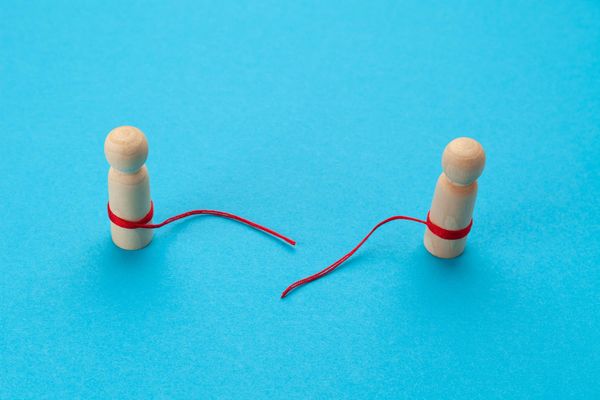Here's some food for thought: a study of college students done by Tufts University found that 27 percent were overweight, 27 percent had at least one component of metabolic syndrome and 12 percent had high total cholesterol levels. These dangerous signs mean that many college students are eating their way to serious health problems. Offer your teen these four tips (click here for a printable version).
Smart Food Choices for Healthy College Living
Being at college offers you the freedom to make food decisions, from what you'll eat to when you'll eat it. If you use that freedom wisely, the leftover sushi won't get you (as in food poisoning), nor will the dreaded "freshman 15" (the mythical 15 pounds freshmen are said to gain; most males gain an average of 6 pounds, and females gain an average of 4.5 pounds). And, who knows, you could wind up healthier than when you arrived. Here are some tips to help you choose healthfully, to benefit both your body and your brain:
Tip # 1: Eat What Your Body Needs
For good health, eat grains (bread, cereal, rice, pasta), vegetables, fruits, milk (also yogurt, cheese), and meat or beans every day. A study of University of New Hampshire students revealed that 95 percent of undergraduate women were not meeting their daily fiber needs, and one-fifth or more were falling short on nutritional intake of iron, calcium and folate. Other studies have shown that college students rarely eat enough fruits and vegetables. According to the USDA analysis of nutritional needs (www.mypyramid.gov), the more active you are, the more you can eat.
Gals: What You Need to Eat
A 19-year-old female who exercises less than 30 minutes most days should eat:
- 6 ounces grains (primarily whole grains), 2.5 cups vegetables, 2 cups fruits, 3 cups milk, 5.5 ounces meat and beans, for a daily 2,000 calories. Limit oils to 6 teaspoons and extra fat and sugars to 265 calories (about 1 cup of low-fat cookie dough ice cream).
- If you're active 30 to 60 minutes most days, you can increase to 2,200 calories by having 7 ounces grains, 3 cups vegetables, 2 cups fruits, 3 cups milk, 6 ounces meat and beans (extra fat and sugar may go up to 290 calories).
(Note: Since fruits, vegetables, meats and beans vary in calorie count, this is an estimate of the foods and amounts that will total 2,000 to 2,200 calories. For more accurate calorie totals, check the calorie counts of the foods you are eating at the USDA Nutrient Database: www.nal.usda.gov/fnic/foodcomp/search).
Guys: What You Need to Eat
A 19-year-old male who exercises less than 30 minutes most days should eat:
- 9 ounces grains, 3.5 cups vegetables, 2 cups fruits, 3 cups milk, 6.5 ounces meats and beans, with 8 teaspoons of oil, extra fat and sugars limited to 410 calories, for 2,600 calories daily.
- More active? You may eat 10 ounces grains, 3.5 cups vegetables, 2.5 cups fruits, 3 cups milk, 7 ounces meat and beans, 8 teaspoons of oil and extra fat and sugars to 425 calories, for a daily 2,800 calories.
(Note: Since fruits, vegetables, meats and beans vary in calorie count, this is an estimate of the foods and amounts that will total 2,600 to 2,800 calories. For more accurate calorie totals, check the calorie counts of the foods you are eating at the USDA Nutrient Database: www.nal.usda.gov/fnic/foodcomp/search).
Tip # 2: Learn How to Navigate the Dining Hall
Most campus food services have options for lower fat eating, including baked, broiled or grilled entrées. Many offer vegetarian main dishes as well. Before choosing what to eat, look at all selections offered. Begin by filling at least half your plate with vegetables and fruits. (Eat salad before a meal and you'll cut the total calories you eat, research from Pennsylvania State University found.) Other pointers for navigating the dining hall:
- Use only one plate and put all your food on it. Do not refill. Keep food portions moderate. Big portions make you more likely to keep on eating after you're full, especially if you're sitting and talking with friends.
- Skip fat- or cream-based sauces and gravies—or ask for them on the side. Add only what you need for flavor.
- If you want dessert, go back after your meal to make your choice. You're less likely to load up on sweets when you're full.
- Choose water or low-fat milk to drink, not soda, which only provides sugar and empty calories.
Tip # 3: Avoid Freshman 15 Outside the Dining Hall
Stress, irregular schedules, parties and the freedom to eat French fries smothered in cheese sauce whenever you want to—all these are reasons why first-year college students sometimes gain weight. Most don't actually add 15 pounds, as the name of this phenomenon implies, but one study out of Tufts University showed freshmen women gaining 4.5 pounds and men gaining up to 6 pounds. Some tips:
- It's boring, but true: you'll prevent weight gain by exercising, eating a balanced diet and getting good sleep.
- Staying up late? Don't order pizza for a fourth meal. Keep healthy snacks in your room. Fruit, yogurt, popcorn, instant oatmeal, soup and even protein bars are better choices.
- Having healthy snacks on hand also helps you avoid the temptations of your dorm's vending machines.
- Soda and other soft drinks serve up empty calories—and lots of them. Make the switch to diet soda, or better yet, water.
- Weird as it may sound, you shouldn't miss a meal. Missed meals lead to overeating and cravings for junk foods. Aim for eating meals at the same time every day.
- Don't skip breakfast. Start your day (at whatever time) with light, healthful food.
- Carry a granola bar, small box of cereal or apple with you, just in case you miss a meal.
Tip # 4: Don't Let the Leftover Sushi Get You
Eating in dining halls and group settings can expose you to illnesses from foods. Problems are caused by poor refrigeration, contamination during preparation or undercooking.
- Call the student health center if you have symptoms of food-borne illness—diarrhea, accompanied by fever or vomiting.
- Eat only fully cooked meat, poultry, seafood and fish. If you see pink or red flesh, don't eat it.
- Say "no thanks" to unrefrigerated potato and egg salads, raw milk and cheese and unpasteurized cider or juice.
- Don't save leftover sushi or sushi rice. They can harbor bacteria and lead to food-borne illness.
- Store other leftovers in your dorm room refrigerator and use them within a day or two. If you don't have a refrigerator, toss 'em.







